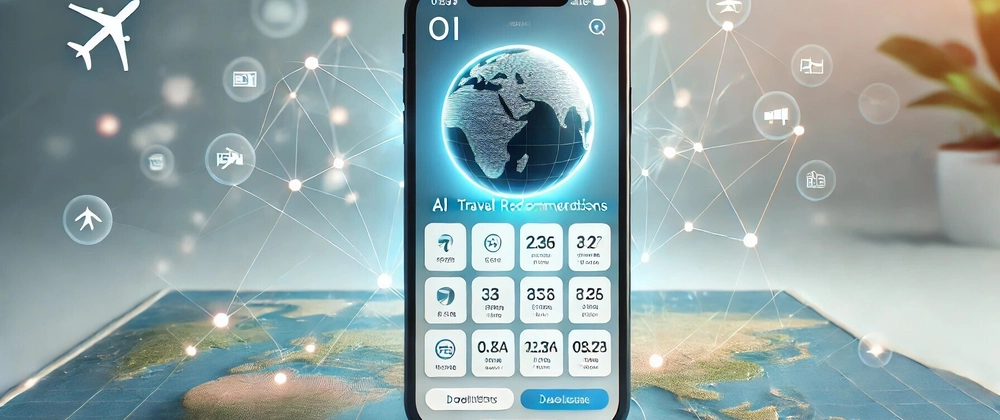Introduction
The travel industry is changing with time. AI-powered travel apps are at the forefront of this evolution. With the power of artificial intelligence, these apps enhance the user experience and make travel planning more personalized, effortless, and efficient. These apps not only provide personalized itineraries based on preferences and budget but also help in providing real-time updates on flights through their intelligent chatbots. AI-driven travel apps are reshaping the way of exploring the world.
Stages of AI Travel App Development
To integrate automation, real-time insights, and personalized experience strategic approach is required.
Below are the key stages:
1. Ideation & Market Research
Define the purpose of the AI travel app (e.g., itinerary planner, virtual travel assistant, dynamic booking).
Identify pain points in the travel industry and how AI can solve them. Analyze competitors and gather insights on AI trends in travel technology.
2. Planning & AI Strategy
Outline core AI features such as personalized recommendations, chatbot assistance, and real-time updates.
Choose AI technologies (Machine Learning for personalization, NLP for chatbot interactions, predictive analytics for pricing trends).
Create a roadmap with milestones, budget allocation, and feature prioritization.
3. UI/UX Design for AI Travel Experience
Design an intuitive interface for seamless travel planning and bookings.
Implement interactive elements like voice search and real-time trip suggestions.Ensure mobile responsiveness and accessibility for diverse user needs.
4. AI Model Training & Development
Train machine learning models on travel data (user preferences, reviews, pricing fluctuations).
Implement NLP for chatbots to provide real-time travel assistance.Develop predictive analytics for personalized trip suggestions and fare predictions.
5. Core App & Backend Development
Build the app’s frontend and backend with AI-driven automation.
Integrate APIs for flights, hotels, weather updates, and local recommendations.Ensure seamless AI integration with travel data sources for real-time updates.
6. Testing & AI Performance Optimization
Test AI-driven recommendations for accuracy and personalization.
Conduct security, functionality, and performance testing.Optimize chatbot interactions and user queries for efficiency.
7. Deployment & Launch
Deploy the app on iOS, Android, and web platforms.
Optimize app store presence using AI-driven ASO (App Store Optimization).
Monitor early user feedback and AI model performance.
8. Continuous Learning & AI Optimization
Improve AI algorithms based on user behavior and feedback.
Update features with enhanced predictive analytics and real-time travel insights.
Scale AI capabilities to adapt to changing travel trends and user preferences.
By following this structured AI-driven approach, a travel app can provide intelligent, real-time, and highly personalized travel experiences, revolutionizing how users plan and book trips.



Top comments (1)
Some comments may only be visible to logged-in visitors. Sign in to view all comments.